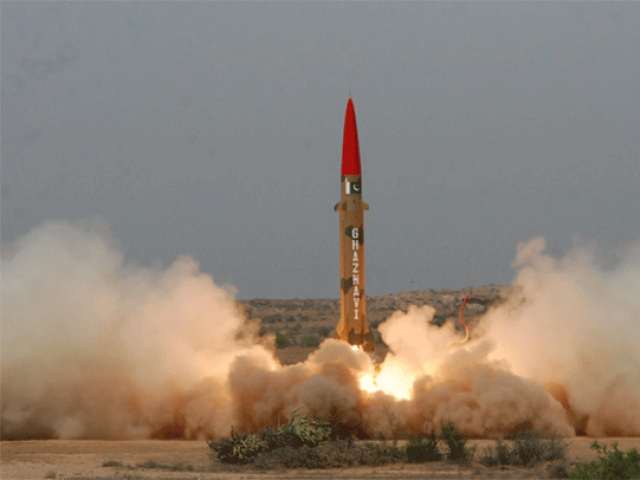Pakistan offers India bilateral arrangement on non-testing of nuclear weapons
Proposal for adherence to CTBT reflective of Pakistan's policy of promoting nuclear restraint in South Asia, says FO

“The bilateral non-testing arrangement, if mutually agreed, could become binding immediately without waiting for the entry into force of the CTBT at the international level,” revealed FO spokesperson Aizaz Chaudhry. PHOTO: ISPR
Prime Minister’s Adviser on Foreign Affairs Sartaj Aziz had earlier this month renewed Islamabad’s proposal to New Delhi for simultaneous adherence to the Comprehensive Test Ban Treaty (CTBT).
A similar proposal, Nafees Zakaria said, which was made following Pakistan’s nuclear tests in 1998, did not elicit a favourable response from India.
Pakistan rules out talks on nuclear programme freeze
“Pakistan has indicated the possibility that the two countries may consider a bilateral arrangement, which is reflective of its policy of promoting restraint and responsibility in South Asia and its consistent support for the objectives of the CTBT,” the spokesperson said in a statement.
“The bilateral non-testing arrangement, if mutually agreed, could become binding immediately without waiting for the entry into force of the CTBT at the international level."
Explaining further, the spokesperson said while the unilateral moratoriums declared by the two countries were voluntary, legally non-binding and could be withdrawn unilaterally, a bilateral arrangement will be mutually binding and difficult to withdraw from unilaterally.
“Both countries could consider working out the details of the arrangement and mutually agreed confidence-building measures in relation to it.”
UN chief says end 'madness' of nuclear weapon testing
The spokesperson said a mutual agreement could set the tone for mutually agreed measures on restraint and avoidance of arms race in South Asia.
“A bilateral arrangement on non-testing will also send a positive signal to the Nuclear Supplier Group (NSG) countries, which are discussing the non-proliferation commitments of non-NPT states in relation to the question of membership," said Zakaria.



















COMMENTS
Comments are moderated and generally will be posted if they are on-topic and not abusive.
For more information, please see our Comments FAQ